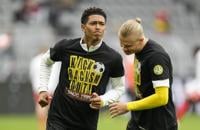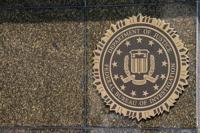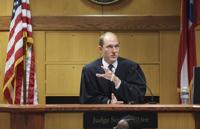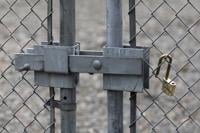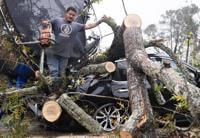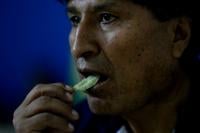MADRID (AP) — Hanging from a highway bridge in Madrid, an effigy of one of the world’s most famous Black soccer players stands as a graphic reminder of the racism sweeping through European soccer.
And they are everywhere.
In Italy, where monkey chants swirled in April as a Black player celebrated a goal. In England, where a banana peel thrown from a hostile crowd during a game in north London landed at the feet of a Black player after he scored a penalty. In France, where Black players from the men’s national team were targeted with horrific racial abuse online after they lost in last year’s World Cup final.
Go outside Europe and you’ll find them, too.
In Australia, where there were monkey noises and fascist chanting during last year’s Australia Cup final. In South America, where the continent’s biggest competition, the Copa Libertadores, has been blighted by monkey chants. In North Africa, where Black players from sub-Saharan Africa have complained of racist chants by Arab fans.
The manifestation of a deeper societal problem, racism is a decades-old issue in soccer that has been amplified by social media and a growing willingness to call it out. Only 11 years ago Sepp Blatter, then president of soccer governing body FIFA, denied there was racism in the game, saying any abuse should be resolved with a handshake.
The Black player currently subjected to the most vicious and high-profile racist insults is Vinícius Júnior, the 22-year-old Brazilian who plays for Real Madrid, the most successful soccer team in Europe.
It was an effigy depicting Vinícius that hung from an overpass near Madrid’s training ground in January. Two weeks ago in perhaps a defining incident for the Spanish game, Vinícius was reduced to tears after confronting a fan who made monkey gestures toward him.
It’s Vinícius who is emerging as the leading Black voice in the fight against racism, which continues to stain the world’s most popular sport.
“I have a purpose in life,” he said on Twitter, “and if I have to keep suffering so that future generations won’t have to go through these types of situations, I’m ready and prepared.”
Vinícius’ biggest concern is that Spanish soccer authorities are doing little to stop the abuse, leading to racism being an accepted part of soccer in a country where he has played since he was 18.
Indeed, federations around the world have been too slow to equip themselves with the powers to sanction teams for the racist behavior of their fans, despite being given the authority by FIFA to do so since 2013.
Fines? Sure. Partial stadium closures? OK. But more stringent punishments, like point deductions or expulsion from competitions? They are typically reserved for matters such as financial mismanagement, not racial abuse of players.
The result is a sense of helplessness among Black players. Asked what he expects to happen after the Vinícius incident, Real Madrid coach Carlo Ancelotti said: “Nothing. Because it has happened lots of times and nothing happens.”
Anti-racism campaigns and slogans are welcomed but increasingly viewed as tokenism, especially when fines for racial abuse by fans often are so pitiful.
Experts believe the global outrage and outpouring of support for Vinícius following his latest abuse could mark a turning point in the fight against racism in Spain. It certainly struck a chord in Brazil, where there were protests outside the Spanish Consulate in Sao Paulo, while the Spanish league is seeking to increase its authority to issue sanctions. Its protocol has been to denounce incidents and pass evidence to courts, where cases are typically shelved.
Jacco van Sterkenburg, a professor of race, inclusion and communication in soccer and the media at Erasmus University in Rotterdam, said explicit racism in stadiums is more accepted in Spanish and southern European soccer culture compared to places like England and the Netherlands, where the media, former players and soccer federations have openly addressed the issue.
“When, as a football association, you don’t take a firm stance against it and you don’t repeat that message time and time again, it will reappear,” Van Sterkenburg said.
Jermaine Scott, an assistant professor of history at Florida Atlantic University, told the AP that while overt racism is no longer a recurring problem in mainstream American sports, institutional racism is, reflected in the lack of coaches and executives who are Black, Indigenous or people of color. He sees this same institutional racism in European soccer.
“As soccer spread throughout the world, different cultures made the game their own, and instilled different values, like creativity and innovation, and importantly, joy, and some would even say freedom,” Scott said.
“So when a player like Viní Jr. plays with the classic Afro-Brazilian style, accompanied by the samba celebrations, it upsets the value system of European soccer.”
Soccer needs outside help with racism and gets it through anti-discrimination campaigners such as Kick It Out in Britain and LICRA in France. The Fare network, a pan-European group set up to counter discrimination in soccer, places undercover observers in crowds at Europe’s biggest games to detect racist chants and extremist symbols on banners.
Fans also are increasingly likely to raise awareness of racist incidents by reporting them or posting videos and photos on social media, which authorities often use as evidence to punish perpetrators.
The growth of social media has its downsides when it comes to the amplification of racist abuse in soccer compared to previous generations, where it was mostly restricted to inside stadiums.
Now, people can fire off racist insults over their phone anonymously, to the accounts of the world’s best players on Instagram and Twitter.
More education and stronger punishments are vital in the fight to stamp out racism, said a former World Cup winner who played in Spain and experienced similar abuse to Vinícius.
“Racism is ingrained, it’s something people are used to, it’s something that is passed from one generation to another,” said the player, who declined to be named because he’s not allowed by his current employer to give interviews.
“And we can’t even say that it’s something that will get better with time, because it was the same thing many decades ago and nothing has changed.”
___
Douglas reported from Sundsvall, Sweden.
___
More AP soccer: and


